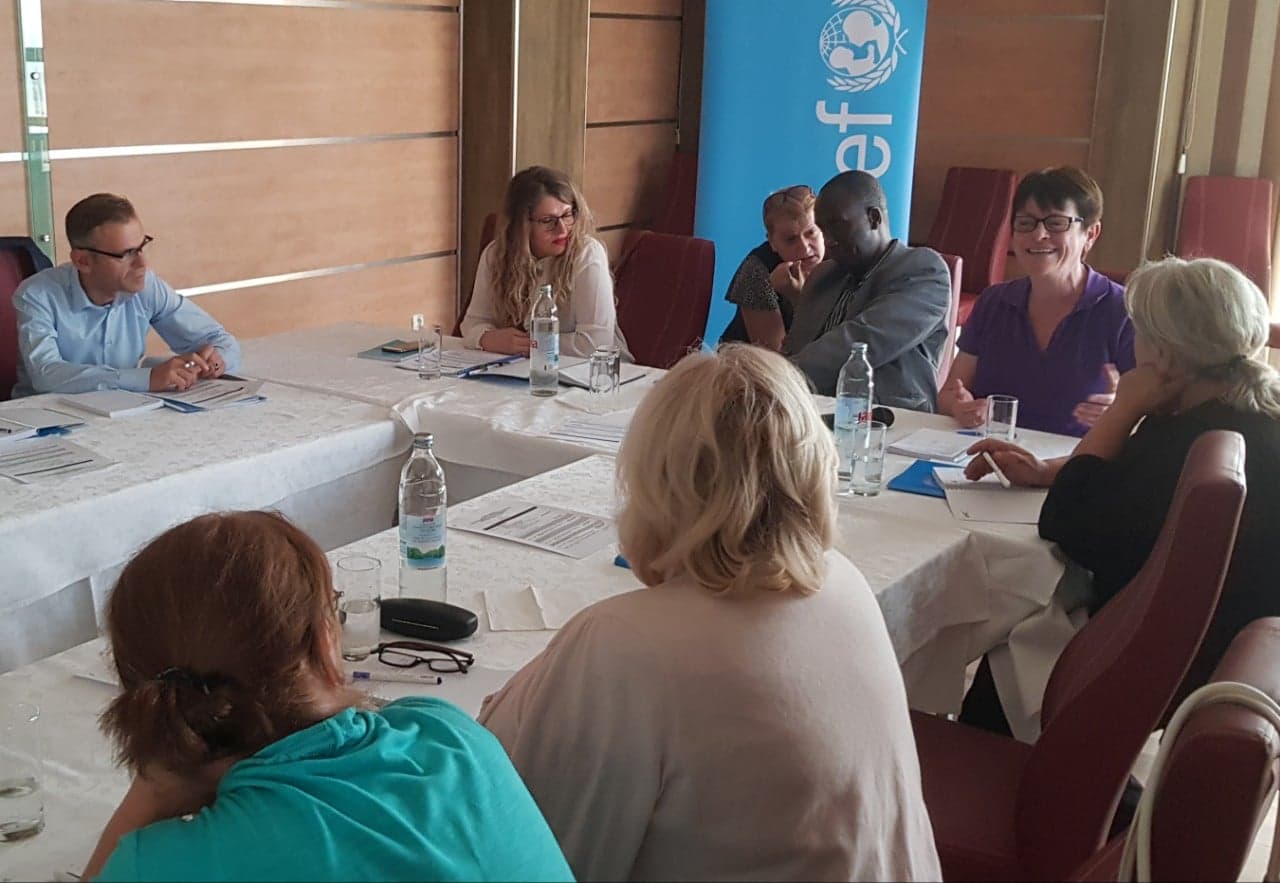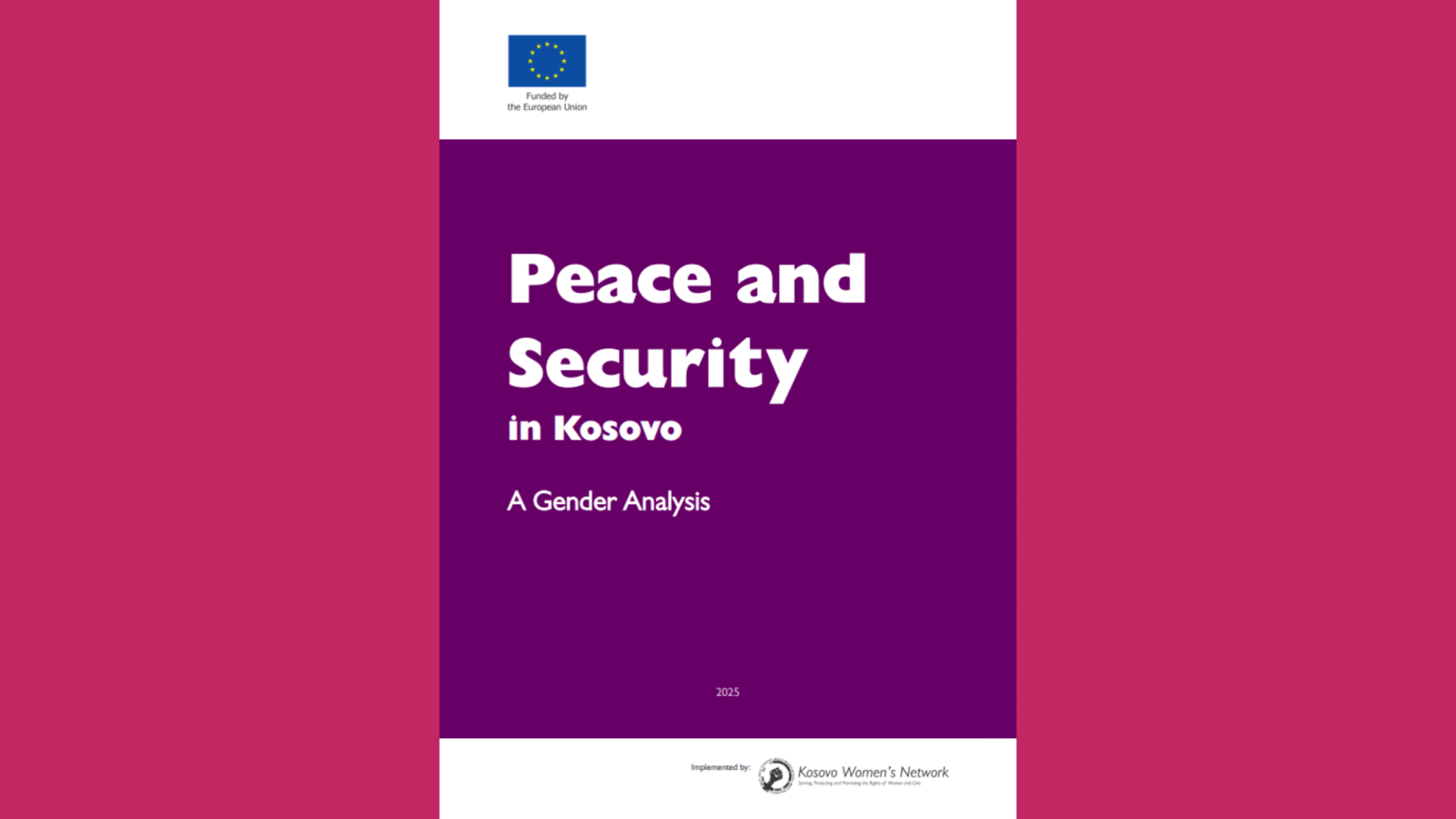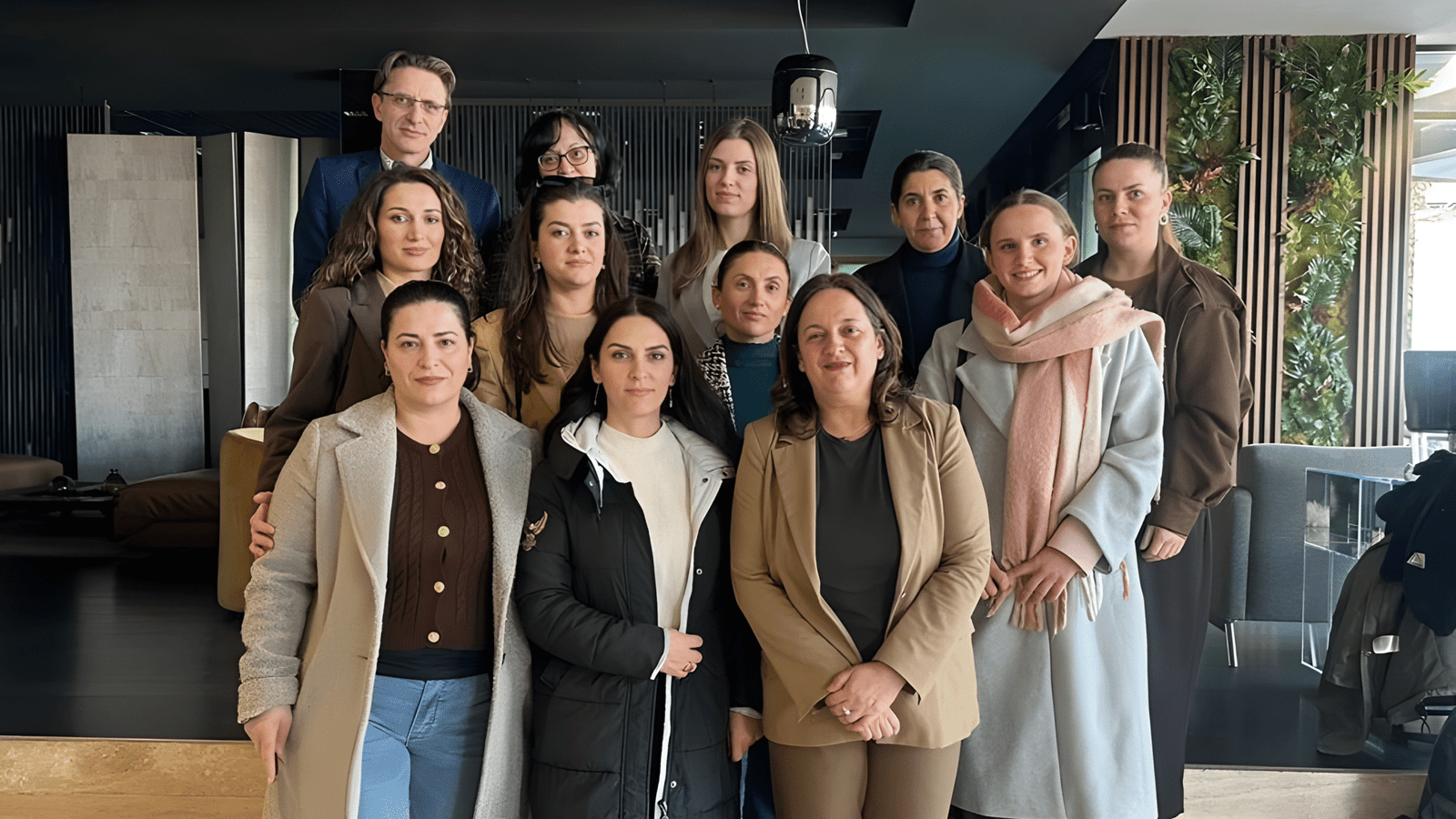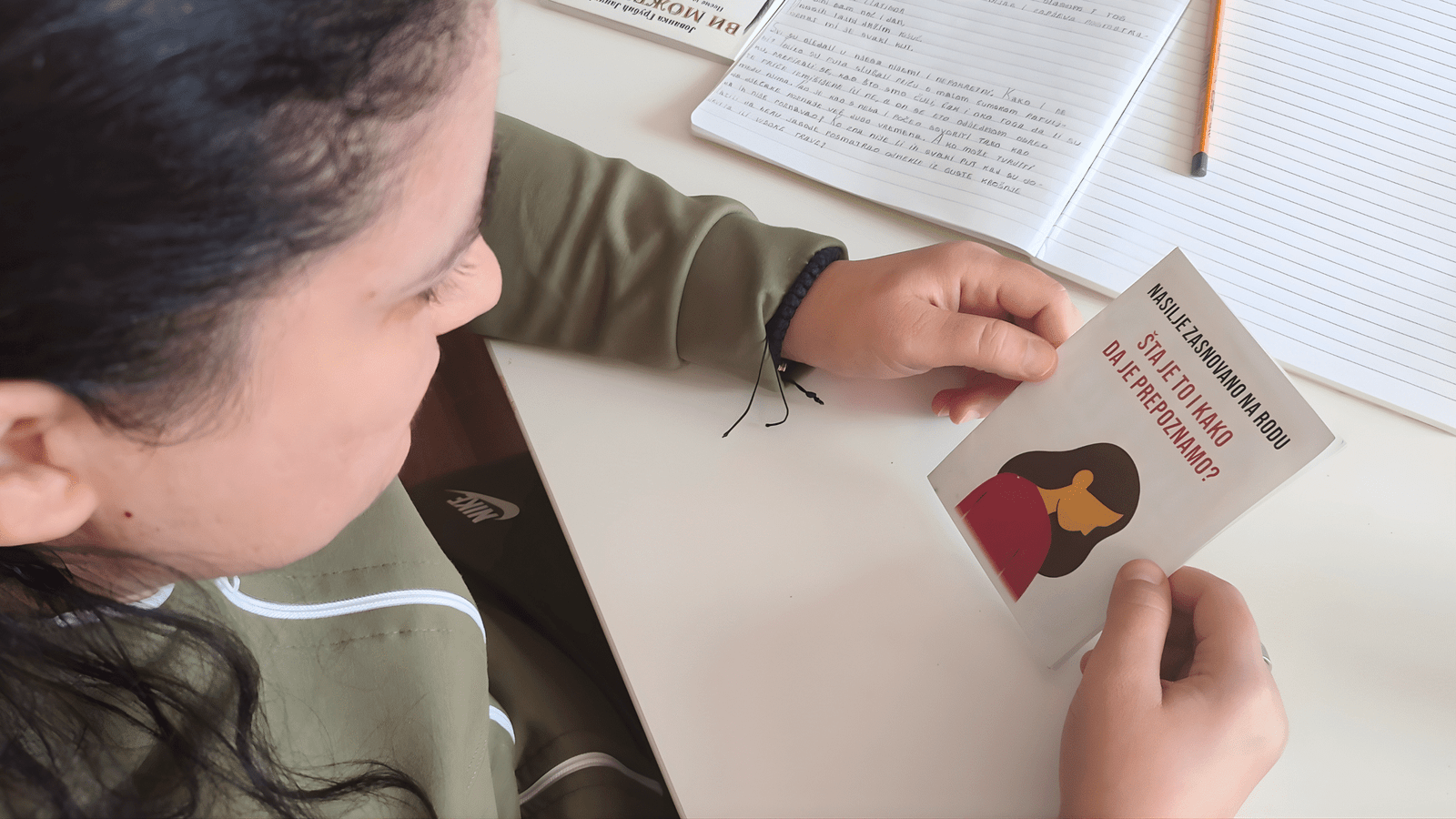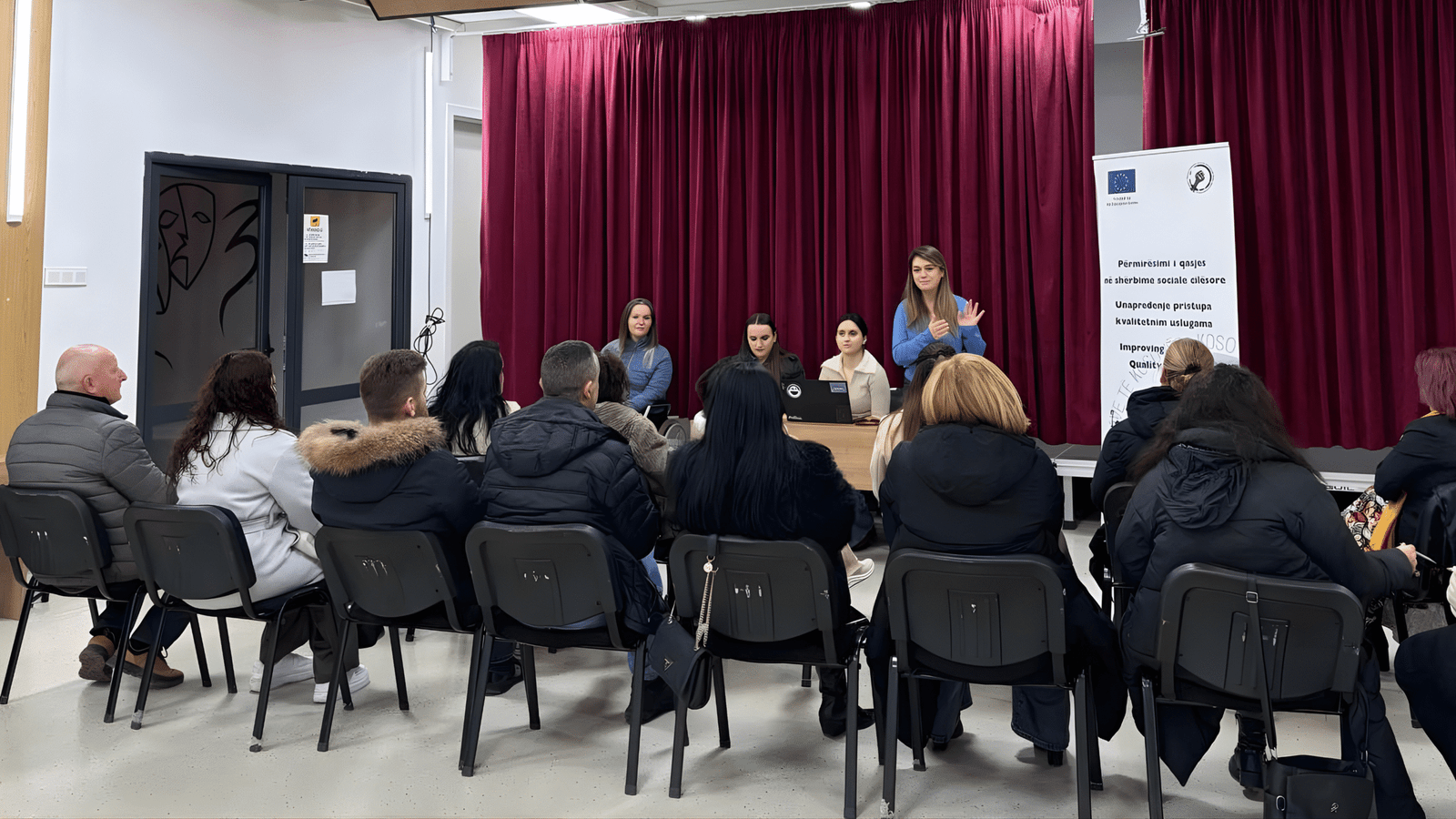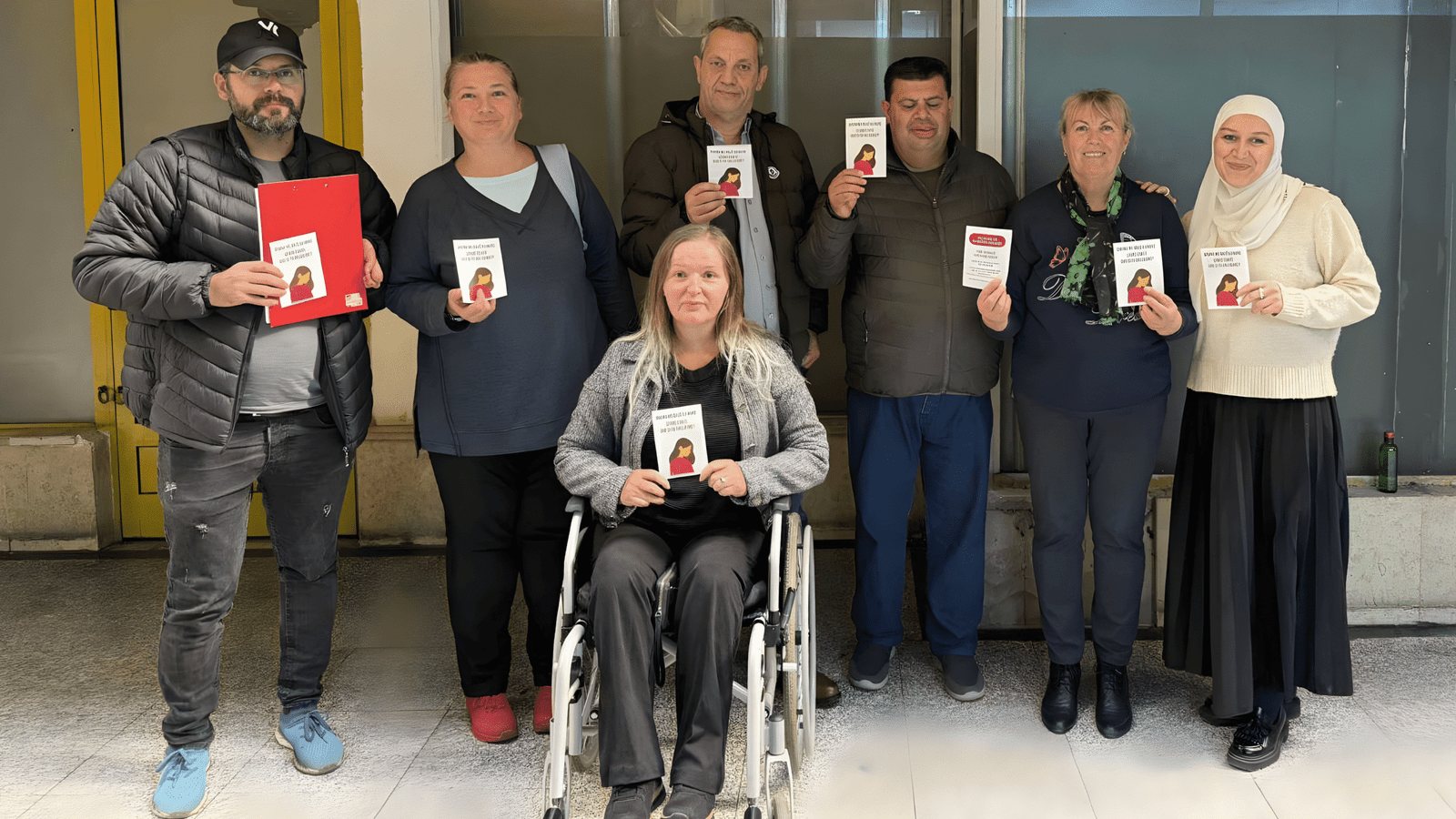Yesterday, the Ministry of Health, UNICEF and Kosovo Women’s Network (KWN) in cooperation with the Action for Mothers and Children launched a joint effort to engage healthcare workers in transforming traditional gender roles in Kosovo.
From an early age, girls and boys are socialized to dress and act a certain way. Their gender determines how society treats them, where they can go and the opportunities they will have in their lives. Research has shown that a child begins learning these roles from a very young age, perhaps as soon as they are born.
A new initiative by the Ministry of Health and UNICEF, in collaboration with KWN, seeks to engage healthcare workers conducting pre-natal and post-natal home visits in talking to families about gender roles and how they can create for their children a happier, healthier life with more opportunities. As part of the UNICEF home visiting project, health practitioners will incorporate positive parenting strategies, gender socialization and the important role of the father into their home visits.
“We think through home visits you can transform the culture towards gender equality in Kosovo,” Deputy Head of UNICEF Office Kosovo James Mugaju stated. “You are the champions of this,” he told healthcare professionals attending the workshop. “This program is successful because of you and your commitment,” Magaju said.
On behalf of KWN, Ilirijana Banjska is among the trainers working with healthcare workers to support them in better understanding gender roles, stereotypes, power relations and how these can contribute to gender-based violence.
KWN’s Executive Director Igballe Rogova spoke at the workshop opening, sharing experiences from the 1990s when, as part of the Motrat Qiriazi Association, activists saw that the best method to reach people was door to door outreach. “I thank you for your work, which will lead to gender equality in Kosovo,” she said. “You have contact with people and you can change people!”
While progress has been made in furthering women’s rights in Kosovo, gender-based stereotypes rooted in social norms continue to undermine equality among women and men. Officially only two in ten women in Kosovo are employed. This is due largely to women’s traditional social roles as unpaid caretakers.
“The situation in Kosovo is slowly changing,” Rogova said. “Men have indicated that they want to be with their children but sometimes people around them say they can’t.” She recalled research by KWN, among others, which showed that approximately 64% of men said they want to spend more time with their children and care for them. “And we support them to!” Rogova said.
Only when men have more rights to spend time with their children will women have more rights to enter into public space.
Therefore, KWN also is working with its partners to call for amendments to the Labor Law, to better enable both men and women to spend time with their families.
As part of the UNICEF home visiting and gender responsiveness project, KWN will continue to collaborate with UNICEF. Rogova thanked the Ministry of Health and UNICEF for engaging KWN in this process and for their collaboration in furthering gender equality in Kosovo.
This initiative aligns with the Kosovo Health Sector Strategy 2017-2021, which seeks to improve the quality of services, while improving access to these services for vulnerable groups.

